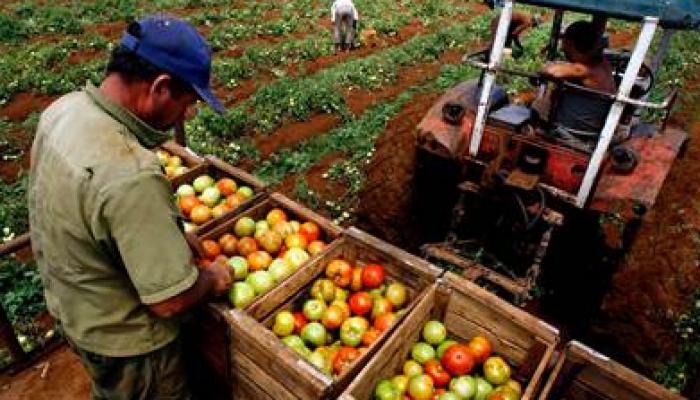Cuba will face very complex problems in 2014 and 2015 which cannot be solved in the short run, though they aim at a socialist economic development model, said vice-president Marino Murillo.
Murillo addressed 1 200 delegates attending the 20th Congress of the Cuban Workers’ Confederation in the presence of the second secretary of the Communist Party, Jose Ramon Machado Ventura.
In his update of the implementation of the social and economic guidelines adopted by the Party, Murillo said that generating wealth in an efficient manner continues to be the main challenge of Cuban economy, which is still facing the problem of having one million laborers in the agricultural sector, 20 percent of five million Cuban workers, and they only contribute 3.6 percent to the Gross Domestic Product.
Due to low productivity, the country continues to import high volumes of food, 50 percent of which can be produced on the island, Murillo said and went on to criticize those who say that since salaries are not enough, working is not worth the while till they are raised. He said this is a vicious circle that has to be eliminated.
Murillo said that the government has drawn up a strategy to be implemented year by year with its necessary update. He mentioned the elimination of the double currency as one of the most complex tasks to undertake this year and in 2015.
He noted that the socialist Cuban economic and social model is in tune with the doctrine defined by President Raul Castro about building a socialist society, which is prosperous and sustainable.
This idea takes on the relationship between the ownership over major production means, “of which we are all co-owners—he noted—and this justifies the fact that based on the state budget everyone has access to free healthcare and education.”
However, Murillo said that not every one is equal so the standard of living and the satisfaction of each one will depend on his or her contribution to society.
The member of the political bureau of Cuba’s Communist Party said that the socialist companies must be transformed through a process to which the union movement must adapt itself.


